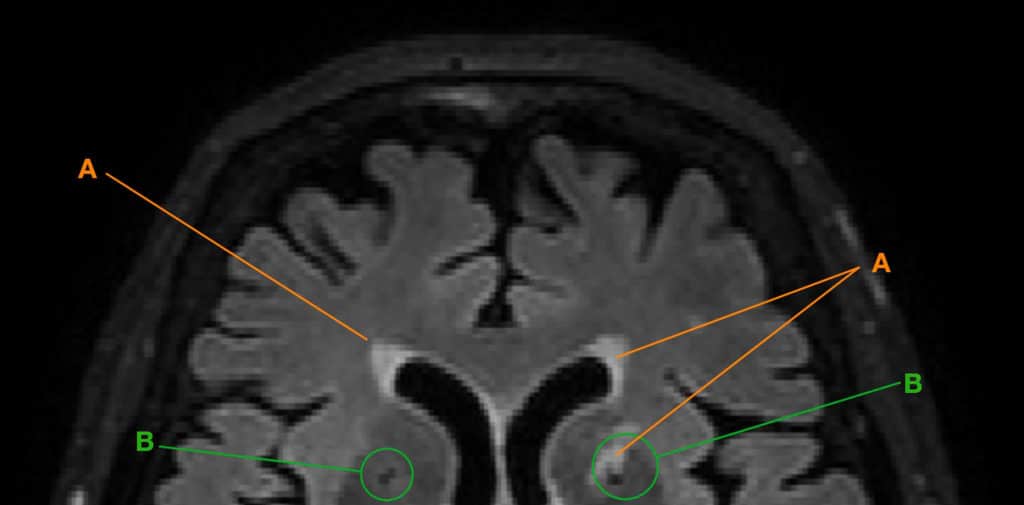Good education benefits a person by having a good personality and a promising career.
Now, a study added one more extraordinary benefit of a good education.
The benefits of good education and lifelong learning extend into old age.
The initial findings of a long-term study show that specific degenerative processes are reduced in the brains of academics. Their brains are better able to compensate for age-related cognitive and neural limitations.
A team of researchers under the University Research Priority Program “Dynamics of Healthy Aging” led by Lutz Jäncke, professor of neuropsychology at the University of Zurich, has now explored a positive effect of education on our brains as we get older in a seven-year long-term study.
The medical term cerebral small vessel disease (CSVD) refers to clinical and imaging findings that result from abnormalities in perforating cerebral arterioles, capillaries, and venules.
Markers of cerebral small vessel disease (CSVD) have previously been associated with age-related cognitive decline.
Using longitudinal data of cognitively healthy, older adults-the team of researchers investigated baseline status and change in white matter hyperintensities (WMH) (total, periventricular, deep), normal-appearing white matter (NAWM), brain parenchyma volume (BPV), and processing speed over seven years as well as the impact of different covariates by applying latent growth curve (LGC) models.
The researchers followed more than 200 senior citizens for over seven years. The study participants are not affected by dementia, have average to above-average intelligence, and lead highly active social lives. They were examined neuroanatomically and neuropsychologically using magnetic resonance imaging at regular intervals. Based on complex statistical analyses, the researchers were able to show that academic education had a positive effect on age-related brain degeneration.
White spots and black holes

In her Ph.D. thesis, first author Isabel Hotz used novel automatic methods, among others, to study so-called lacunes and white matter hyperintensities. These degenerative processes showed “black holes” and “white spots” on the digital images. The reasons for this are not yet known and may have to do with small, unnoticed cerebral infarcts, reduced blood flow, or loss of nerve pathways or neurons. This can limit a person’s cognitive performance, particularly when degeneration affects the brain’s critical regions.
The findings revealed that senior citizens with an academic background showed a significantly lower increase in these typical signs of brain degeneration over seven years. “In addition, academics also processed information faster and more accurately – for example, when matching letters, numbers of patterns. The decline in their mental processing performance was lower overall,” summarizes Hotz.
Tapping into reserves
The findings add to the initial findings of other research groups, who have found that education positively affects brain aging. Previous studies also suggest that mental processing speed depends on the integrity of neural networks in the brain. If these networks are affected, mental processing speed decreases.
Even though no causal link between education and reduced natural brain degeneration has so far been found, the following at least seems likely: “We suspect that a high level of education leads to an increase in neural and cognitive networks over the course of people’s lives and that they build up reserves, so to speak. In old age, their brains are then better able to compensate for any impairments that occur,” says neuropsychologist Lutz Jäncke.
It is also possible that brains active well into old age are less susceptible to degeneration processes, adds the neuropsychologist. However, this would have to be verified in the further course of the ongoing long-term study.
Journal Reference
- Hotz, I., Deschwanden P., Merillat S., Liem F., Kollias S., Jäncke L. (2021). Associations of subclinical cerebral small vessel disease and processing speed in non-demented subjects: A 7-year study. NeuroImage: Clinical, 32, 102884. DOI: 10.1016/j.nicl.2021.10288432.
